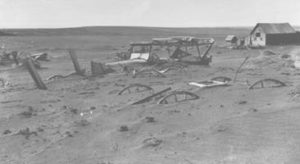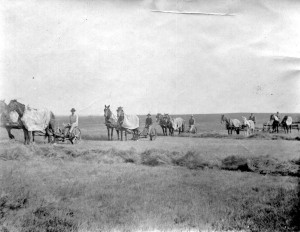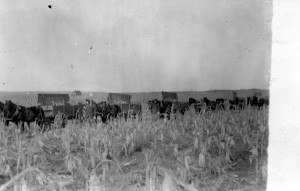Many insane asylums had gardens which grew both flowers and produce. The Canton Asylum for Insane Indians included a garden that provided supplemental fresh food for staff and patients, but sometimes with indifferent results.
South Dakota was subject to harsh and unpredictable weather, with great temperature swings at times, drought, and pests. The Canton Asylum did not escape these problems, though its superintendents did their best to raise what crops and livestock they could.
During its lifetime, the asylum had only two superintendents: Oscar Gifford and Dr. Harry Hummer. The two were worlds apart in management style, and their different approaches showed up in the garden. Since he had resided in the area for decades,
Gifford presumably understood the climate and had observed his neighbors’ efforts at gardening; he also allowed patients a certain amount of liberty to do things like fish and pick berries outside the asylum grounds.
Gifford was also used to running a business or office, and his typical management style was to keep his distance and rely on his staff’s expertise. This led to its own problems at times, but he generally trusted the people he hired from Canton to do a good job for him.
Hummer was a stranger to both the town of Canton and to the West. He had no agricultural experience and completely astonished his assistant superintendent, Dr. John Turner, with his ignorance. Turner could scarcely believe Hummer’s questions, such as “what was straw and hay?”
Unfortunately, Hummer had a problem delegating responsibility and would not let his staff simply do their jobs. His interference and lack of understanding created problems that resulted in disappointing crops and frustration on the part of his staff. Of course, the patients ultimately suffered because they truly depended on what the asylum garden produced for nutritious, fresh food.








